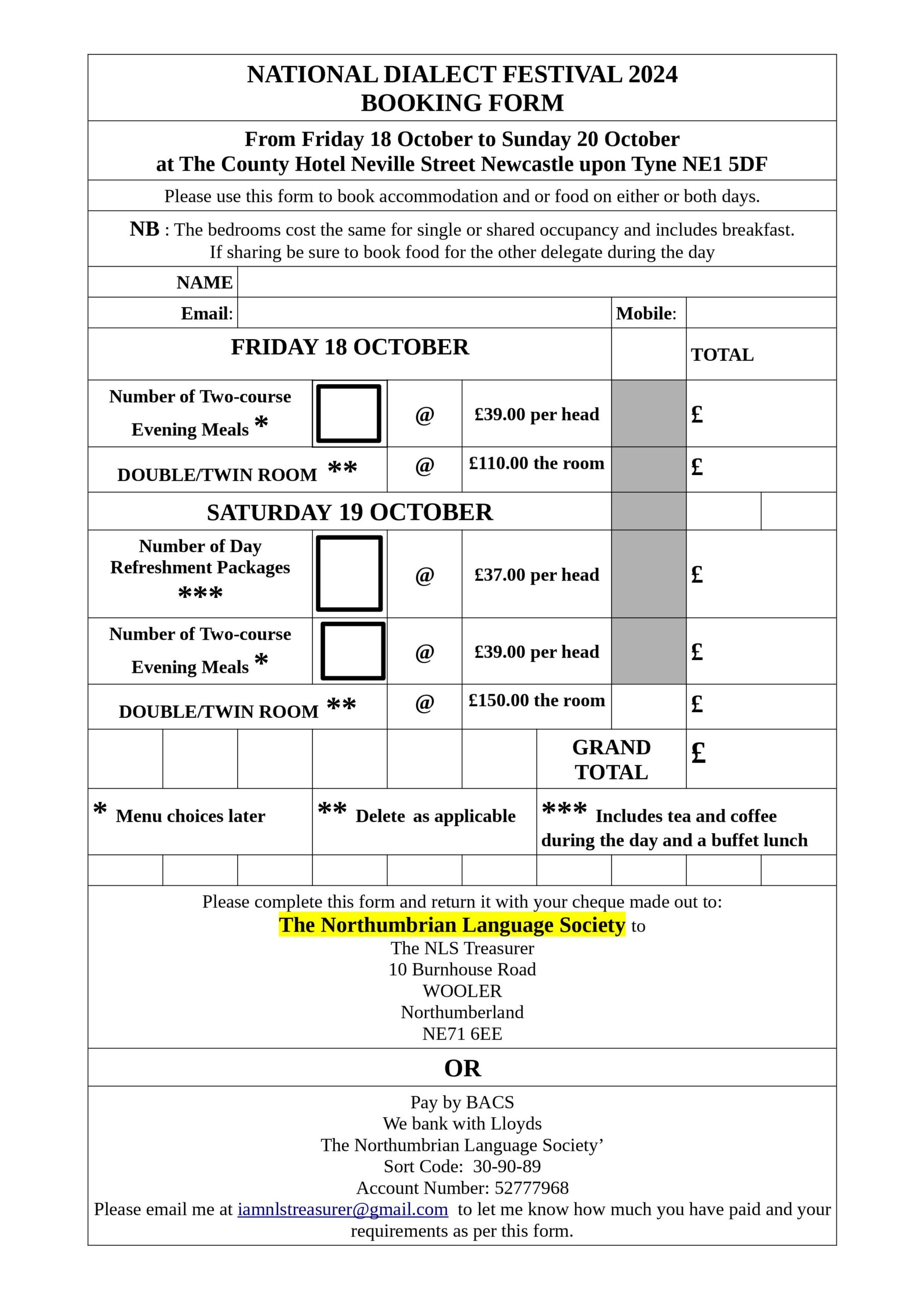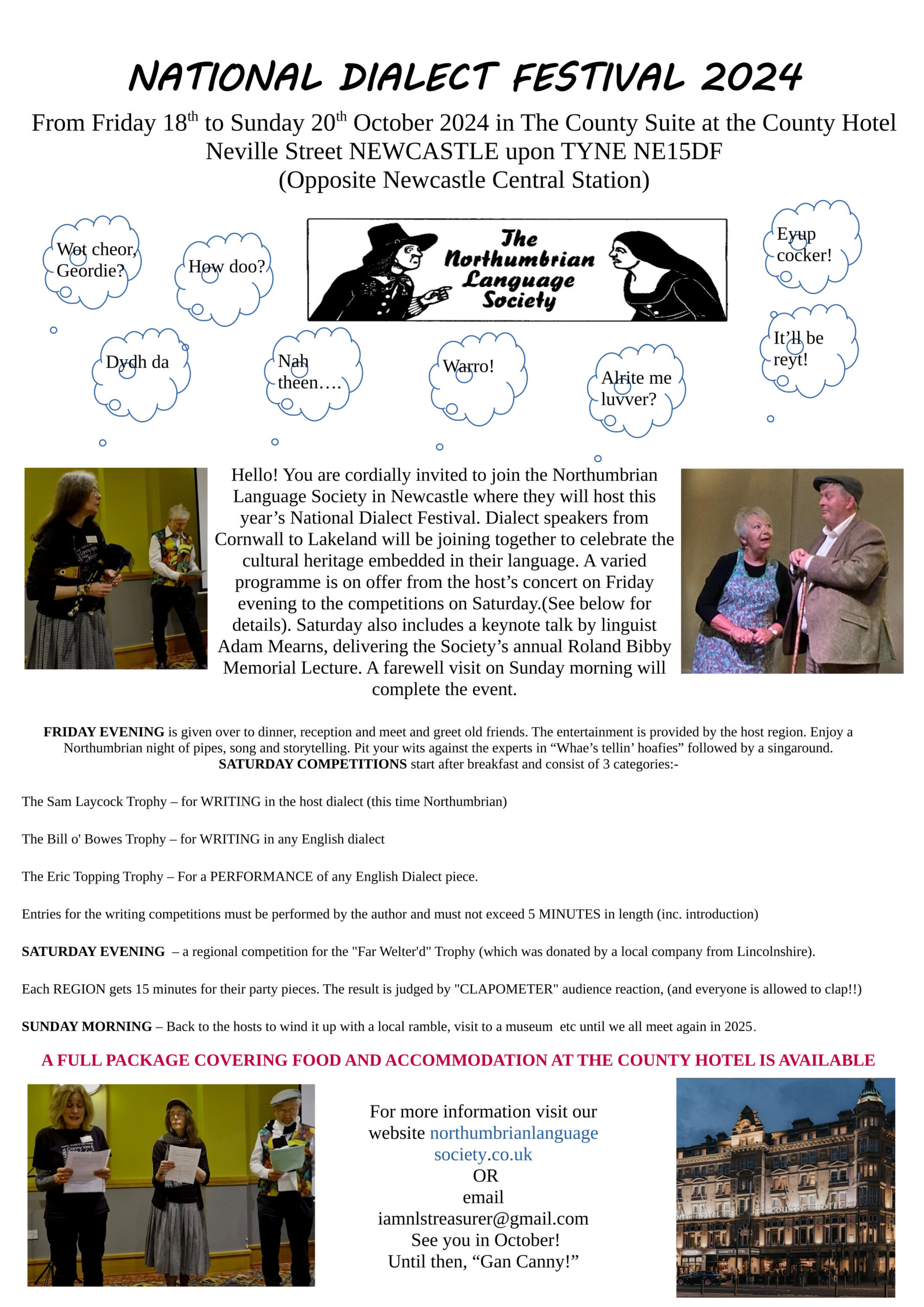Northumbrian – The History.
Northumberland, Northumbria and other Diversions
There is a lot of confusion around the word Northumbria, so let us try and sort out the mess.
Whatever anyone tries to tell you, there is only one true and historically accurate use of the word Northumbria, and that relates to the ancient Anglian kingdom based at Bamburgh and York, that stretched all the way from the Humber in the south up to the Firth of Forth in Scotland. Please remember that Northumbria was an independent and sovereign nation centuries before there were such places as England or Scotland, and it was the wars to defeat the Vikings that led to the creation of England.
The first acknowledged king of Northumbria was Aethelfrith (593-616). He was a grandson of Ida, the first king of Beornica, and he became ruler of the joint kingdom of Beornica and Deira in 603, after the battle of Degsastan. The joint kingdom became known as Northumbria, because it brought together under one government all the peoples who lived north of the river Humber.
The last accepted king of Northumbria was Osbert (849-867), who was killed by the Danes. After his death, the southern part of Northumbria, Deira, from the Tees to the Humber, was overrun by the Vikings. It became part of the Danelaw, and Deira eventually became Yorkshire, and cut all ties with the rest of Northumbria.
The truncated kingdom survived until 973, when the Lothian region was given to Kenneth II, king of the Scots, by Edgar, king of England. (Can we ever forgive him? – and we want Edinburgh back if the Scots go independent!) This was the effective end of the kingdom of Northumbria, which had shrunk to the old heartland of southern Beornica, the modern counties of Northumberland and Durham. So, if you were born and raised in Northumberland or Durham, technically, you are a Beornican, but more importantly, you’re a Northumbrian! I’ll bet you’re glad about that, aren’t you?
So what about Northumbria police? Or the Northumbria Tourist Board? Or Northumbrian Water? Well, they’ve all got it wrong, because they don’t know their history. But there’s not much we can do about that at the minute. But come the glorious revolution …….!!!
Finally, the Northumbrian language. Well, this was spoken all over the old kingdom, but now it survives only in Northumberland and north Durham.
It has four main dialects: Tyneside (Geordie); southern (known as Pitmatic, around Ashington and south-east Northumberland); northern (north of the Coquet , through Alnwick and up to Berwick); and western (from Allendale through Hexham up to Kielder). This is the area within which the Northumbrian burr ( the rolling rr) can be heard, and this is the main area covered by the activities of the Northumbrian Language Society; but we’ll talk to anyone who is interested in preserving the culture, history and heritage of the whole area between the Tees and the Tweed, because as everybody knows, the north-east of England is the canniest place on earth!!
Share this content

